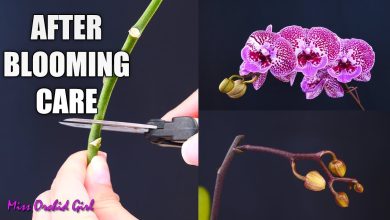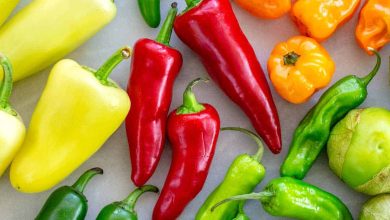Fertilize the Organic Garden: 5 natural and homemade fertilizers
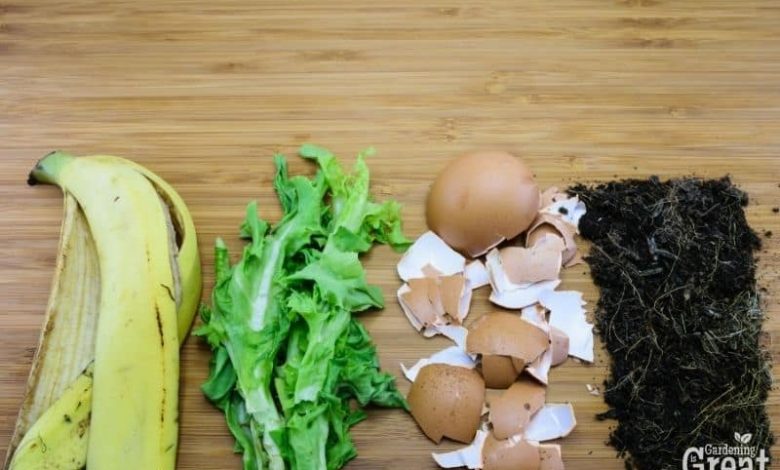
Today we will see how to fertilize the plants of the orchard and the garden in an organic or ecological way. There are several types of natural fertilizers, such as compost, earthworm humus or homemade fertilizers made with plants that can be used to fertilize the soil and get healthier plants.
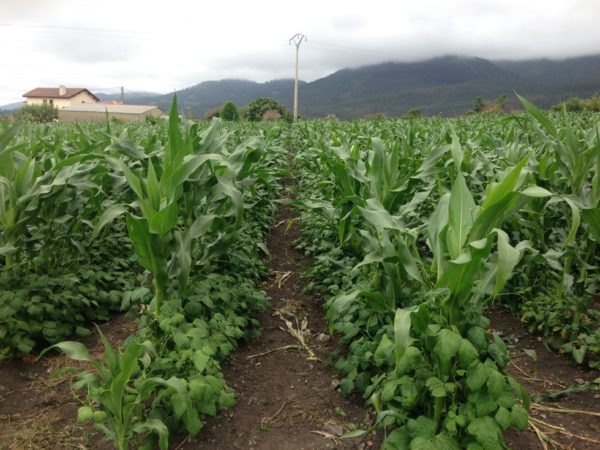
To provide nutrients to plants, conventional agriculture often resorts to artificial chemical fertilizers, mineral amendments that directly provide these elements. But in Organic Agriculture this is not allowed, so it is usually fertilized with organic materials that are transformed into humus in the soil and provide the soil with the necessary nutrients for plants.
We have already talked about most of these materials in other articles, so in today’s post we will review and tell you some more tricks to fertilize the organic garden. The best thing is that you combine several of these subscription methods, to take advantage of the advantages or the contributions that each one of them makes.
Why fertilize the plants?
We have already seen in the article The ideal substrate: the importance of its choice, which is essential for the plant to be able to dispose of and absorb from the substrate the essential nutrients for its development, such as nitrogen, phosphorus, potassium, calcium, magnesium, zinc, sulfur…
If the crops do not have these elements at their disposal, the nutrient deficit will cause the appearance of symptoms such as dry or withered leaves and the plant will decrease its yield (you can see the main symptoms of nutrient deficiency in this table that I have taken from the book « Ecological Agriculture» by Javier Flórez Serrano).
5 types of natural fertilizers for plants
Next we will see some ecological fertilizers that will help us to fertilize the plants of the garden in a natural way.
1. Manure and other livestock droppings
You can use cow manure, horse manure, semi-solid excrement, such as chicken manure and pig manure, or guano (each with different nutrient levels).
It is a good fertilizer for the garden, although if you live in a city and what you have is an urban garden, it will be a little more difficult to get it for free. In any case, you can go to a farm or buy organic fertilizer based on manure (if so, be careful, it has to be suitable for organic farming!).
If you live in the countryside, you can ask at the livestock farms that are closest to your home, and surely one of them will be able to sell you or give you the fertilizer you need.
You need to leave them for a while to compost and thus the temperature reached causes the seeds that could remain in the droppings to «die».
2. Home compost
We have already talked about compost on other occasions, the fertilizer par excellence in the organic garden. To have complete information about this ecological fertilizer, I suggest you consult the post Composting in the garden, a good ecological technique.
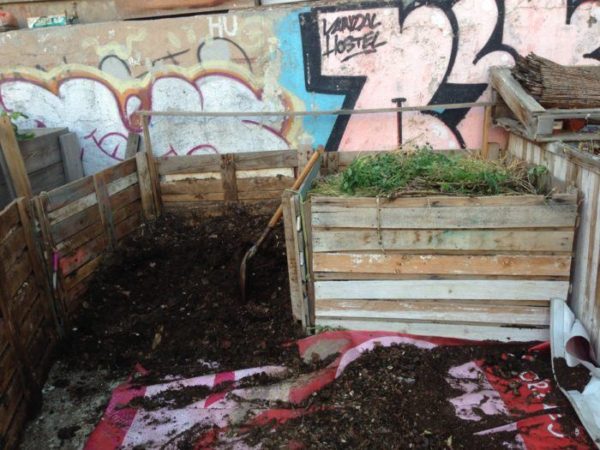
There are also other types of special compost to fertilize the garden, such as bocashi compost.
3. Worm humus or vermicompost
It is a special type of compost that is obtained thanks to the activity of the worms that live in it. You can learn more about this ecological technique in the article Vermiculture: making worm compost.
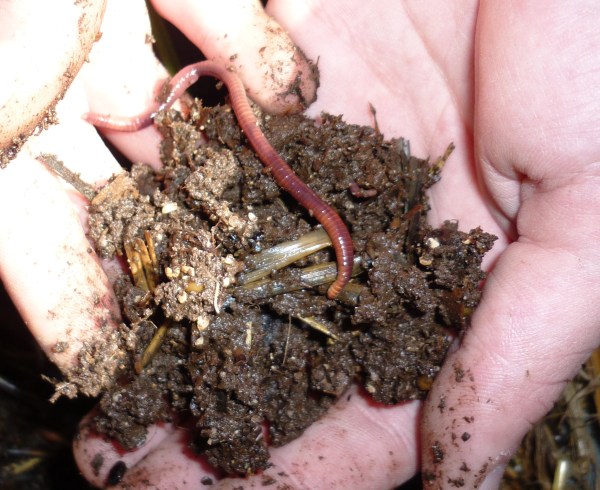
4. Green manures
Burying green crops in the ground is another way to fertilize the garden (especially when the land is empty or fallow).
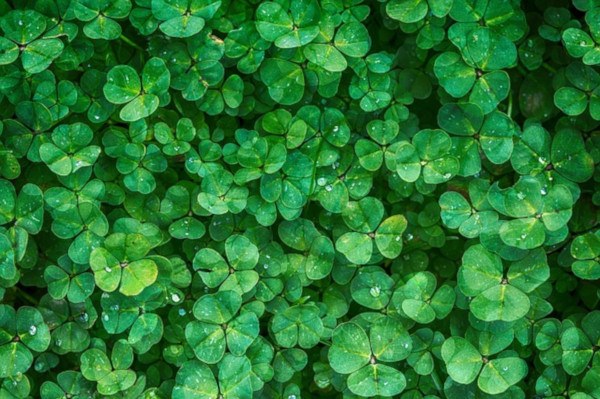
We have also talked about them recently, you can learn about some of the most common green manures in this post: Green manure for the organic garden.
5. Homemade liquid fertilizers
Here are some ideas to make very nutritious liquid organic fertilizers:
Infusion or compost tea
You can make a kind of infusion with the help of a cloth bag filled with compost that rests in water for a few days.
This infusion of compost will provide hundreds of beneficial microorganisms for plants (as we have already seen, compost is formed thanks to the bacteria that inhabit it and that help break down organic waste), it will also help improve nutrient retention in the soil and its structure, while it fertilizes the plants and they grow with greater vitality and strength -very useful for young plants-. In addition, the compost tea will create a biological barrier against pests and diseases.
How to do it? We explain it to you in this post about Compost Tea: how to make homemade compost tea step by step.
Liquid worm humus
It is a very highly concentrated liquid fertilizer that you can obtain from your vermicomposter or vermicompost where you are making the vermicompost. It is obtained by collecting the leachates or liquids that come from the vermicomposting process, and that are highly nutritious for plants. You can collect the liquid every week or every two weeks and lower it with water (this is very important) to apply it as irrigation.
In addition to fertilizing the plants and thus improving their production, it stimulates the development and strength of the roots -the plant will grow more vigorously- and the plant ‘s production of chlorophyll is increased. It also improves the pH of the substrate and helps maintain its moisture.
Do you know other ways to fertilize the organic garden or have you used some of these natural fertilizers? If so, or if you have any questions or suggestions on the subject, do not hesitate to make your contributions in the comment thread below. Greetings and good luck with the garden!
References
- Kolmans, E. & Vásquez, D., 1999. Organic Farming Manual. An introduction to basic principles and their application. Organic Agriculture Group. Cuban Association of Agricultural and Flower Technicians.
- Brechelt, A., 2004. Ecological soil management. Agriculture and Environment Foundation (FAMA), Dominican Republic.
- Félix Herrán, J. et al., 2008. Importance of organic fertilizers. Journal of Society, Culture and Sustainable Development of the Autonomous Indigenous University of Mexico, Ra Ximhai, vol. 4 (1), p. 57-67.

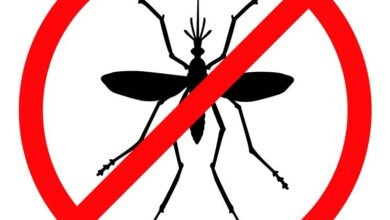
![Photo of Prune a Peppermint: [Importance, Time, Tools, Considerations and Steps]](https://www.complete-gardening.com/wp-content/uploads/2022/08/prune-a-peppermint-importance-time-tools-considerations-and-steps-390x220.jpg)
